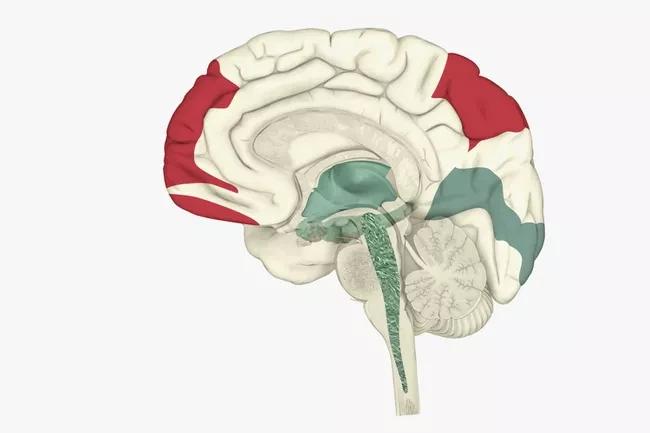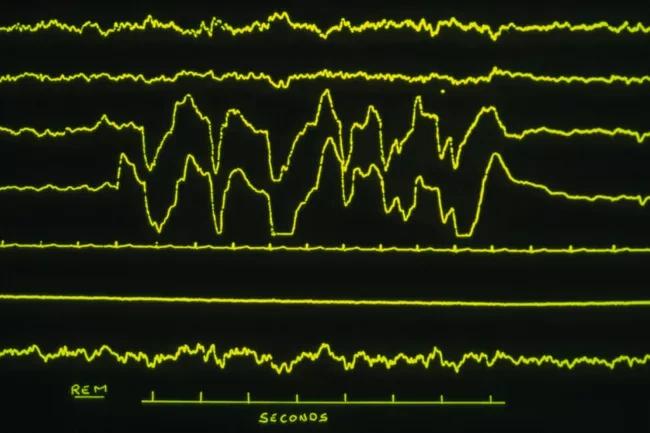Explore the World's Best Ideas
Join today and uncover 100+ curated journeys from 50+ topics. Unlock access to our mobile app with extensive features.
Rapid eye movement (REM sleep)
REM is an active and final phase of the four-stage sleep cycle characterised by increased brain activity and autonomic nervous system functions. The brainstem and hypothalamus mostly control this stage of sleep.
Many theories hypothesise that REM sleep is helpful for learning and memory formation, but the purpose and benefits of REM sleep are still unknown.
17
298 reads
REM definition
Before REM sleep, the three prior stages of sleep occur progressively slow bodily function and brain activity. These stages are known as non-REM or N1, N2, and N3.
However, during REM sleep, the eyes move rapidly sideways. The heart rate, respiratory rate and blood pressure increase to their values while awake.
REM sleep is the longest period of the sleep cycle, lasting 70 to 120 minutes.
16
246 reads
REM and your brain
During REM sleep, brain wave activity increase, as measured on an electroencephalogram (EEG).
- N1 sleep shows slowing of the normal alpha wave pattern noted during the awake state.
- N2 sleep introduces K waves - long, high voltage waves - lasting up to 1 second, and sleep spindles - periods of low voltage and high-frequency spikes.
- N3 sleep is characterized by delta waves, or high voltage, slow and irregular activity.
- During REM sleep, sleep patterns show low voltage and fast waves, some alpha waves, and muscle twitch spikes associated with transmitted rapid eye movement.
15
209 reads
Dreams and REM sleep
The most vivid dreams occur during REM sleep. These dreams are often elaborate and emotional experiences that include sadness, anger, apprehension or fear. A person can more readily recall a dream when they awake from REM sleep. However, the purpose of dream content is not currently understood.
Sigmund Freud suggested dreams were a representation of unconscious thought. Another hypothesis proposes that dreams are a random brain activity during REM sleep and not a meaningful experience.
15
202 reads
Benefits of REM sleep
Non-REM sleep is necessary in order to survive. Mild sleep deprivation increases the risk of chronic health conditions and severe sleep deprivation can lead to hallucinations or death.
However, the benefits of REM sleep remain inconclusive. Studies show no obvious adverse effects when participants were deprived of REM sleep.
- Hypothesized benefits suggest certain negative behaviours which should be unlearned are rehearsed through dreams.
- REM sleep is proposed to help transfer memories from the hippocampus to the cerebral cortex.
16
198 reads
IDEAS CURATED BY
Robert H.'s ideas are part of this journey:
Learn more about health with this collection
Ways to improve productivity
Strategies for reducing stress
Tips for managing email overload
Related collections
Similar ideas
9 ideas
Why Do We Dream? The Role of Dreams and Nightmares
healthline.com
8 ideas
Stages of Sleep - Sleep Foundation
sleepfoundation.org
3 ideas
How Sleep Works: Understanding the Science of Sleep | Sleep Foundation
sleepfoundation.org
Read & Learn
20x Faster
without
deepstash
with
deepstash
with
deepstash
Personalized microlearning
—
100+ Learning Journeys
—
Access to 200,000+ ideas
—
Access to the mobile app
—
Unlimited idea saving
—
—
Unlimited history
—
—
Unlimited listening to ideas
—
—
Downloading & offline access
—
—
Supercharge your mind with one idea per day
Enter your email and spend 1 minute every day to learn something new.
I agree to receive email updates



